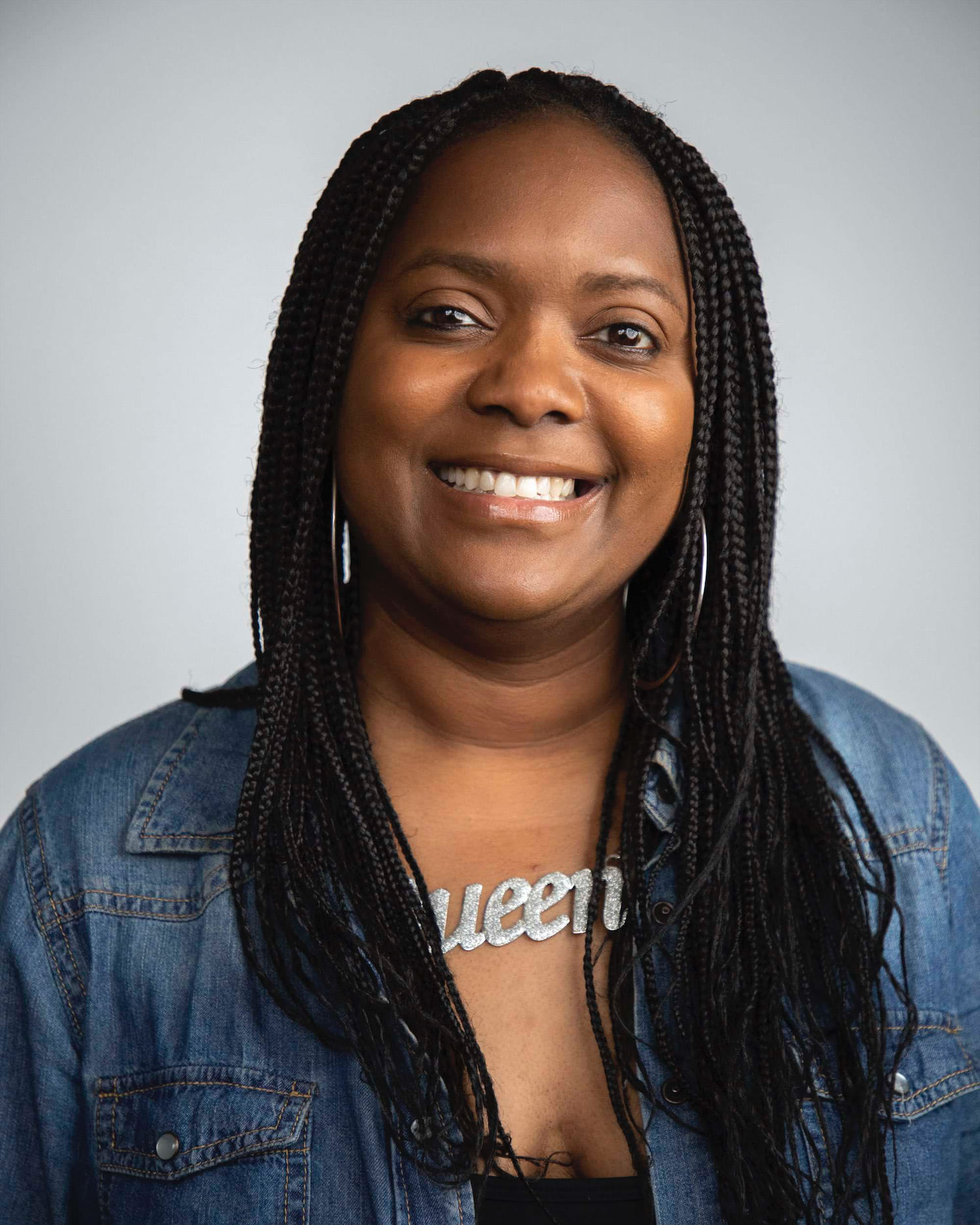Keesa V. Johnson

"The future is in food and farming." says Keesa V. Johnson, MDes candidate at Penny Stamps School of Art and Design. She uses Black and Indigenous research frameworks to work towards solving the wicked problem of equity and access in the food system.
"Systems are people," she says "and you can trace every oppression known to man if you look at the food system." Her goal is to create a framework, using radical tools, to reimagine solutions to this systemic injustice. She hopes her research can be a blueprint that others can build upon, something that other community organizers can use as they address inequity, inaccessibility, and injustice in the food system. It is a blueprint that helps build equity and emancipation into every aspect of design.
Her research is centered between four pillars: cultural ecology, food justice, generative justice and freedom dreaming. With those theories, methods and movements in mind she asks herself "What can I create for people who want to build equity and access out the gate, not tag it on at the end?"
“The needle,” as she calls it, the most specific problem that Keesa is addressing, are disparities related to online food ordering, especially affecting elderly Black communities. This group faces major barriers to healthy and affordable groceries, a problem that has been magnified significantly by the pandemic. Most online ordering systems do not work with these elders' lifestyles nor technological abilities. Keesa says that these third party apps also prioritize profit over the health of the community, raising prices without warning and taking unnecessarily large cuts from consumers.
According to Keesa, this structure causes people to become increasingly alienated from their food. This is a key issue in her work. The intimate relationship between food and community is a critically important part of life for Black and brown people, she says. She hopes her research can add to efforts to claim the value of locally sourced, ethically grown and fairly sold food as a way to increase the health and sustainability of communities of color.
These practical needs guided Keesa's research every step of the way. Centering this problem led her to build a design process that works for these communities in practice. To her, that means "re-indigenizing" research by using Black and indegenous methodologies to radically restructure the research and design process, altering her approach to everything from data collection to vision building. "Wicked problems seem unsolvable because of the type of thinking that goes into them. People are the systems, there are tools, but the thinking comes from us." she says.
Keesa partners with D-town farm, Oakland Avenue urban farm in Detroit and Northwest Initiative to put her research into practice. Their shared goal is simply to help marginalized people, especially Black elders, access healthy, local, affordable food. She uses her expertise to research and design effective solutions to the many logistical problems that these organizations encounter.
Keesa's research is about crafting new parameters of thought, within which lie real solutions to systemic injustice and inaccessibility in the food system. "It's time for some new design tools. If we want a place where everyone feels like they belong, if we want equity and access, then we have to design new tools with which to create that."
Keesa says that the STAMPS MDes program allows her to incorporate her multifaceted experiences into the process of learning and creating, "I was looking for a program that allowed me to be uniquely who I am, and that's what MDes did for me."
Learn more about Keesa V. Johnson and her design work.
Story by Anna Barr.
